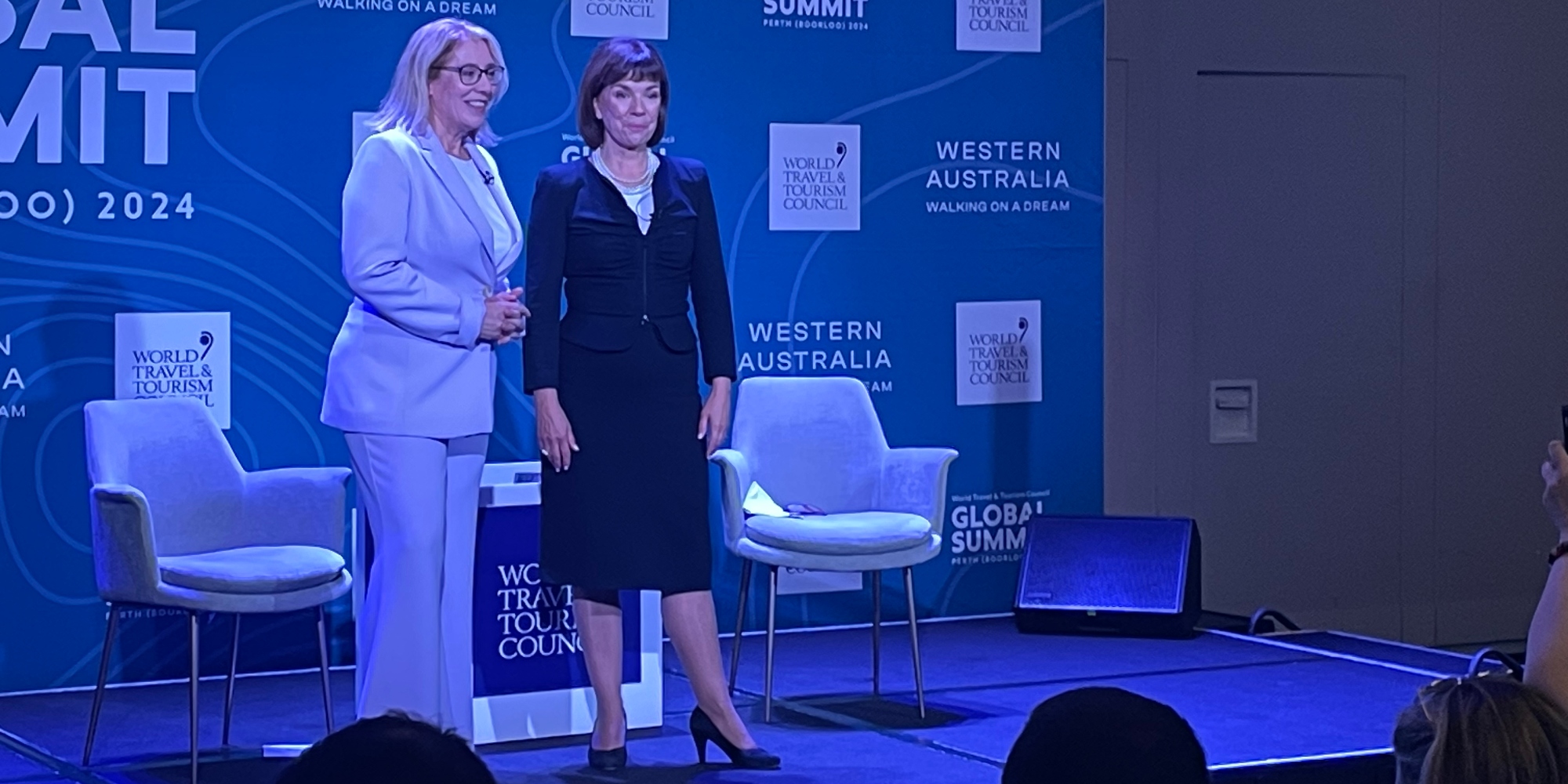The event is bringing together a powerful mix of tourism leaders, investors and policymakers to tackle key issues shaping the future of global travel.
The packed agenda includes vital discussions on economic growth, sustainable aviation fuels, environmental impact and tourism investment opportunities. Western Australia’s tourism strategy, direct Perth flights and Aboriginal tourism initiatives are also in the spotlight.
At the opening press conference, WTTC Senior Vice President Virginia Messina, announced, “We stand on the verge of a record-breaking year in 2024.”
She noted that Australia’s travel sector is set to contribute more than $265 billion, supporting around 1.6 million jobs, which reflects nearly 11% of the country’s workforce. “Travel and tourism is not just recovering. It’s thriving,” she added.
WTTC President and CEO, Julia Simpson, alongside Western Australia’s Deputy Premier and Tourism Minister, Rita Saffioti, joined Messina on stage at the Crown Resort in Perth.
Simpson highlighted that global travel and tourism are projected to surpass pre-pandemic levels, reaching a staggering $11 trillion in GDP terms, accounting for 10% of the global economy. The industry is expected to support 348 million jobs globally, marking a significant milestone in its post-pandemic recovery.

WA Premier and Minister for Tourism, Rita Saffioti (left), with WTTC President & CEO, Julia Simpson
Saffioti expressed her pride in hosting the summit in Western Australia, calling it a “massive global stage” to showcase the state’s tourism offerings and investment opportunities.
According to Saffioti, a key element of WA’s future growth lies in diversifying its economy, traditionally reliant on mining and resources, by boosting the tourism sector. She emphasized the importance of strengthening aviation links, especially with Qantas establishing its second-largest Australian base in Perth after Sydney.
Global connectivity, cultural experiences and new investment in Aboriginal tourism will be central to WA’s strategy for tourism growth.
Western Australia’s natural wonders – such as the Ningaloo Reef, the Kimberley region and the Margaret River wine region – are expected to take centre stage during the summit.
Additionally, Perth has been leveraging major international events like UFC fights, Coldplay concerts and high-profile sports matches to bolster its tourism appeal.
Saffioti also emphasised WA’s commitment to promoting Aboriginal tourism. “We know that tourists from around the world want to experience our rich Indigenous culture and we’ve got a dedicated plan to support these unique tourism experiences across the state,” she said.
Julia Simpson added further weight to the summit’s discussions by announcing two significant reports, one focusing on unlocking the potential of Oceania and the other marking WTTC’s first-ever report on Indigenous tourism.
The summit will also see the launch of “Together in Travel,” a platform aimed at providing accessible resources to small and medium-sized enterprises (SMEs) globally. Simpson pointed out that SMEs are “the lifeblood” of the travel sector, making up as much as 80% of the industry.
The summit agenda also includes a unique “Investors’ Nest” initiative, where university students will pitch sustainable tourism ideas to a panel of investors in a Dragons’ Den-style competition.
Environmental issues are also at the forefront of discussions. Simpson revealed that the tourism sector’s carbon footprint reached 3.5 billion tons of CO2 in 2023 but noted that emissions are now 12% below pre-pandemic levels, signalling positive strides in sustainability.
As the summit continues until Thursday, discussions will cover various emerging trends, including the rise of 65+ female travellers, the growing popularity of multi-generational trips and the powerful influence of social media on tourist destinations.
The WTTC Global Summit is set to leave a lasting impact, helping to shape the future of a thriving, sustainable and inclusive travel industry.



